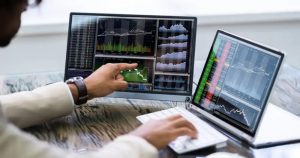If you’ve ever dipped your toes into forex trading, you know that economic news can be a game-changer. The eobroker traders often find themselves glued to financial news outlets, awaiting updates that could send currencies soaring or plummeting. But why does this happen? Let’s break it down.

Imagine you’re at a concert. The band starts playing a slow ballad, and the crowd sways gently. Suddenly, they switch to an upbeat rock song. The energy shifts instantly; people start jumping and dancing. Economic news has a similar effect on forex markets—it changes the tempo.
Take employment reports, for instance. When job numbers are released, traders pay close attention. If more people are employed than expected, it usually means the economy is doing well. Investors might flock to that country’s currency, causing its value to rise. On the flip side, disappointing job numbers can lead to a sell-off.
Inflation data is another hot topic. Higher inflation often leads central banks to hike interest rates to cool things down. Higher interest rates attract foreign investors looking for better returns on their investments, which can boost the currency’s value.
Then there’s GDP growth—an indicator of economic health. Strong GDP figures suggest robust economic activity and can make a currency more attractive to investors.
Now let’s talk about central banks because they’re like the DJs at our concert—they control the music flow. When central banks announce policy changes or interest rate decisions, it sends ripples through forex markets. A surprise rate cut? That’s like dropping a slow jam in the middle of a dance set—unexpected and impactful.
Geopolitical events also play their part in this symphony of chaos. Political instability or unexpected elections can create uncertainty, leading traders to seek safer havens like gold or stable currencies such as the Swiss Franc.